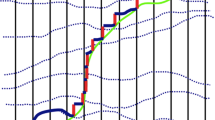Abstract
Irreversible time evolution is in quantum systems described by Master Equations. These are usually derived by elimination of degrees of freedom belonging to an environment acting as a reservoir. When the reservoir is acting as a sink for information, it has got no memory, we obtain equations usually termed Markovian. In this limit it has been shown by semi-group arguments which form preserves all physically relevant properties of the quantum state. It has been noted that not all Markovian equations derived lead to physically meaningful conclusions. On the other hand, the derivations prove that exact equations can be obtained if the memory effects are retained. We have also observed that improper introduction of the memory features may lead to unphysical results. We pose the challenge to find the general criteria which guarantee that the time evolution described by a density matrix is physically acceptable. However, it is also possible to avoid memory problems by deriving an equation of motion with time dependent coefficients, a so called memory-less Master Equation. In order to apply the same considerations on more complicated models one runs into problems posed by the formal structure of the method. Thus we warn against ad hoc applications of irreversible Master Equations.
We explain the properties and emergence of these features with the scope of simple models which can be analysed properly; thus we hope to provide some insight into the character of irreversible time evolution. First we consider an exactly solvable model in which a two-level atom is allowed to decay into a thermally relaxing reservoir, represented by another two-level atom (so-called faked continuum model). Memory equations are, however, highly dependent on the form of memory functions and even a slight misparameterisation leads to nonpositive evolution. As an alternative to the foregoing approach, we outline the derivation of a generalised non-Markovian equation for a two-level system that is coupled to a finite-temperature bath and driven by an arbitrary time-dependent field. This derivation does not invoke the rotating-wave approximation and yields dynamically-modified rates for population decay and decoherence.
Access this chapter
Tax calculation will be finalised at checkout
Purchases are for personal use only
Preview
Unable to display preview. Download preview PDF.
Similar content being viewed by others
Author information
Authors and Affiliations
Editor information
Editors and Affiliations
Rights and permissions
Copyright information
© 2005 Springer
About this paper
Cite this paper
Salo, J., Stenholm, S., Kurizki, G., Kofman, A.G. (2005). The Varieties of Master Equations. In: Akulin, V., Sarfati, A., Kurizki, G., Pellegrin, S. (eds) Decoherence, Entanglement and Information Protection in Complex Quantum Systems. NATO Science Series II: Mathematics, Physics and Chemistry, vol 189. Springer, Dordrecht. https://doi.org/10.1007/1-4020-3283-8_18
Download citation
DOI: https://doi.org/10.1007/1-4020-3283-8_18
Publisher Name: Springer, Dordrecht
Print ISBN: 978-1-4020-3281-3
Online ISBN: 978-1-4020-3283-7
eBook Packages: Physics and AstronomyPhysics and Astronomy (R0)




